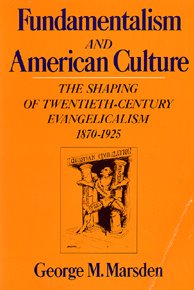Morning Prayer today had a reading from Chapter 7 of Joshua, that I have been pondering (full text of the chapter here) .
In part, I ponder it because of the question of God’s wrath, which is a theme for me at the moment (see here). The basic premise of the story is: God has delivered Jericho into the hands of the Israelites, and everything in the city has to be ‘devoted’ to the Lord. In other words, everything alive (men, women, young, old, cattle, donkeys) has to be killed (6.21), and all the gold and silver has to be committed to the Lord’s Treasury. However, one of the Israelites, Achan, covets some of the treasure, steals it, and buries it in his tent. The Lord takes offence at this, and the next Israelite attack on the locals fails, which causes the ‘hearts of the people [to melt] and become like water’. After a process of elimination, Achan admits to the theft, and the story continues “Then all Israel stoned him, and after they had stoned the rest [ie the stolen goods], they burned them. Over Achan they heaped up a large pile of rocks, which remains to this day. Then the Lord turned from his fierce anger. Therefore that place has been called the Valley of Achor [trouble] ever since”.
The god portrayed in this story is a tribal deity, one who demands obedience and offers rewards in line with such obedience – those rewards being principally the military victories sought by the invading Israelite army (and the demands often being the genocide of the existing inhabitants). How does a Christian understand such a passage? The only way forward, it seems to me, would be to allow for some sort of growth in awareness on the part of the Israelite community, that is, that the Israelite community shared the common understandings of the time (tribal deities) but that within the Israelite consciousness – uniquely – there evolved something which transcended that partial understanding (the evolution can be tracked most clearly in the accounts of the exile). Put differently, a Christian cannot understand the instructions given in this passage as being ‘divine’ (in the sense that, say, John 15 would count as divine). I would understand these stories as telling us as much, or more, about the psychology of the Israelite community, the harshness of their existence, and the way in which their religious language sanctioned that community behaviour.
What we have here, it seems to me, is a vivid description of a scapegoating process. The Israelites have suffered a military setback – something which is in tension with their guiding beliefs about their god’s guidance – and so in order to reconcile the situation, there must be a culprit found, who can be blamed, and then destroyed, thus restoring the status quo ante, and making atonement between the people and their god.
Of course, I have Girard at the back of my mind in making these comments. Most of all, I have the interpretation of the empty tomb, which I came across last Easter, and which I find tremendously fruitful. For the Israelites stone the scapegoat to death, and the body is covered over with a heap of stones – stones representing the death of the scapegoat, and also, symbolically, the communal guilt at murdering one of the community. The community of Israel continually misunderstands the living God, who is not to be found in such processes, and despite the teachings of Moses and the Prophets, they are unable to hear what God wishes to say. So God eventually incarnates his Word – and that Word is then scapegoated and buried under stone. The point of the empty tomb – the rolling back of the stone – is to overthrow that process – to say that God is never aligned with ‘righteous violence’ and the casting of stones.
The clash for the Christian is how to reconcile the God who is buried under stone with the god who advocates stoning – all the time whilst avoiding the temptation of Marcionism. The only way I have found that makes sense is to understand the Bible organically evolving, as a record of a dawning awareness of the nature of God – over against the gods – and as a record, therefore, which contains ‘error’ – that words are placed in the mouth of god which are not faithful reflections of the nature of God. The only way in which this can be structured is through making Christ the determining factor in interpretation – those elements of the Old Testament which are in tune with Christ are authentically His voice; those elements which are discordant are to be understood as part of the context within which His speech was originally heard. To make each part of the text equivalent in authority – either across the Old Testament, or between Old and New Testaments – is, to my mind, to do violence to the spiritual integrity of both text and reader.
Either we follow the god who executes, or we follow the God who is executed. That choice is also our πειρασμον (Mt 6.13).






